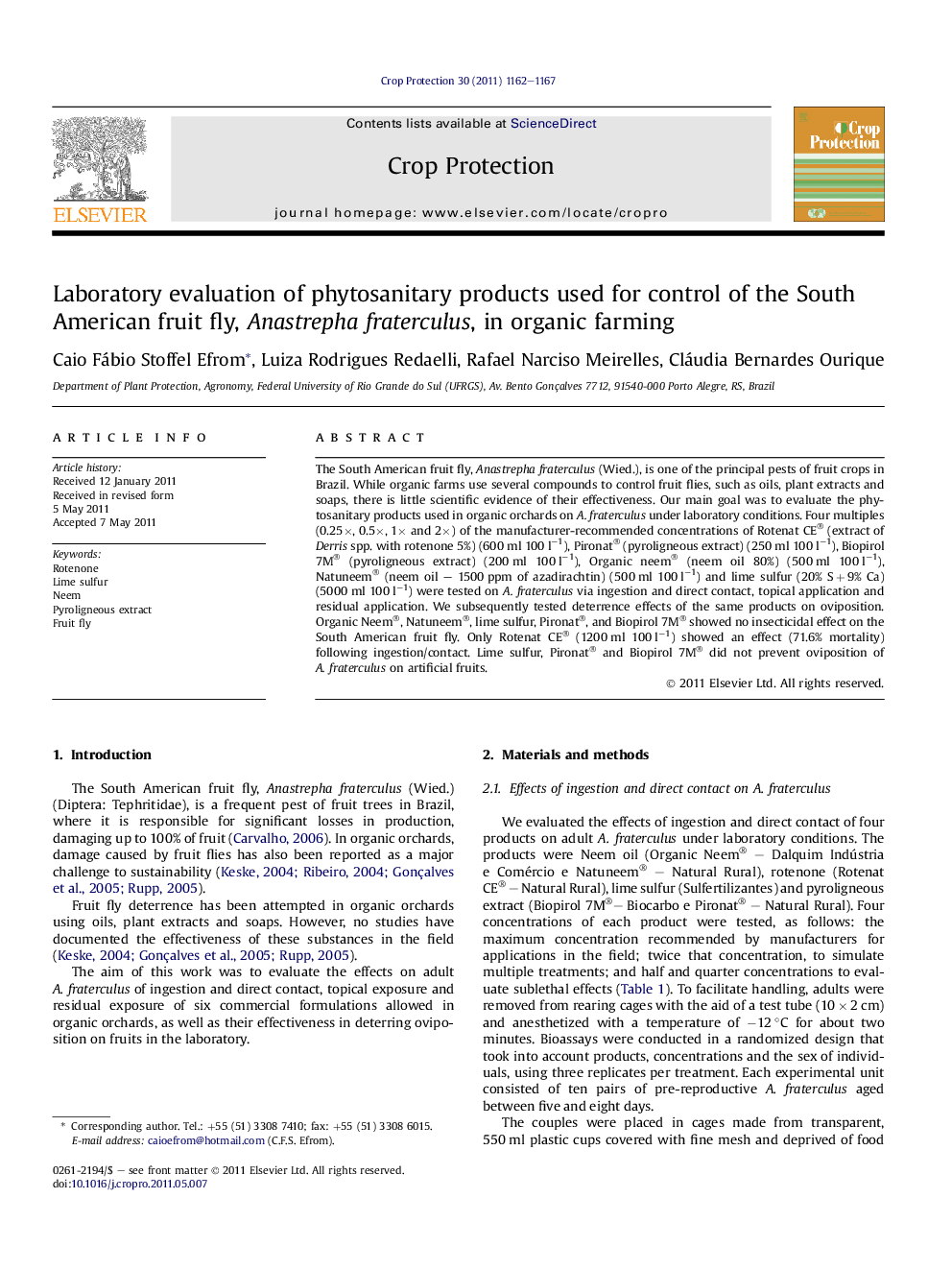| Article ID | Journal | Published Year | Pages | File Type |
|---|---|---|---|---|
| 4506621 | Crop Protection | 2011 | 6 Pages |
The South American fruit fly, Anastrepha fraterculus (Wied.), is one of the principal pests of fruit crops in Brazil. While organic farms use several compounds to control fruit flies, such as oils, plant extracts and soaps, there is little scientific evidence of their effectiveness. Our main goal was to evaluate the phytosanitary products used in organic orchards on A. fraterculus under laboratory conditions. Four multiples (0.25×, 0.5×, 1× and 2×) of the manufacturer-recommended concentrations of Rotenat CE® (extract of Derris spp. with rotenone 5%) (600 ml 100 l−1), Pironat® (pyroligneous extract) (250 ml 100 l−1), Biopirol 7M® (pyroligneous extract) (200 ml 100 l−1), Organic neem® (neem oil 80%) (500 ml 100 l−1), Natuneem® (neem oil – 1500 ppm of azadirachtin) (500 ml 100 l−1) and lime sulfur (20% S + 9% Ca) (5000 ml 100 l−1) were tested on A. fraterculus via ingestion and direct contact, topical application and residual application. We subsequently tested deterrence effects of the same products on oviposition. Organic Neem®, Natuneem®, lime sulfur, Pironat®, and Biopirol 7M® showed no insecticidal effect on the South American fruit fly. Only Rotenat CE® (1200 ml 100 l−1) showed an effect (71.6% mortality) following ingestion/contact. Lime sulfur, Pironat® and Biopirol 7M® did not prevent oviposition of A. fraterculus on artificial fruits.
► Two pyroligneous extract tested did not have any insecticidal effect on fruit fly. ► Organic neem® and Natuneem® did not have any insecticidal effect on fruit fly. ► Lime sulfur (20% S + 9% Ca) also did not have any insecticidal effect on fruit fly. ► Product based on rotenone had insecticidal effects by contact/ingestion to fruit fly. ► None of the products tested deterred oviposition.
